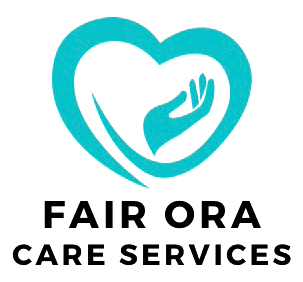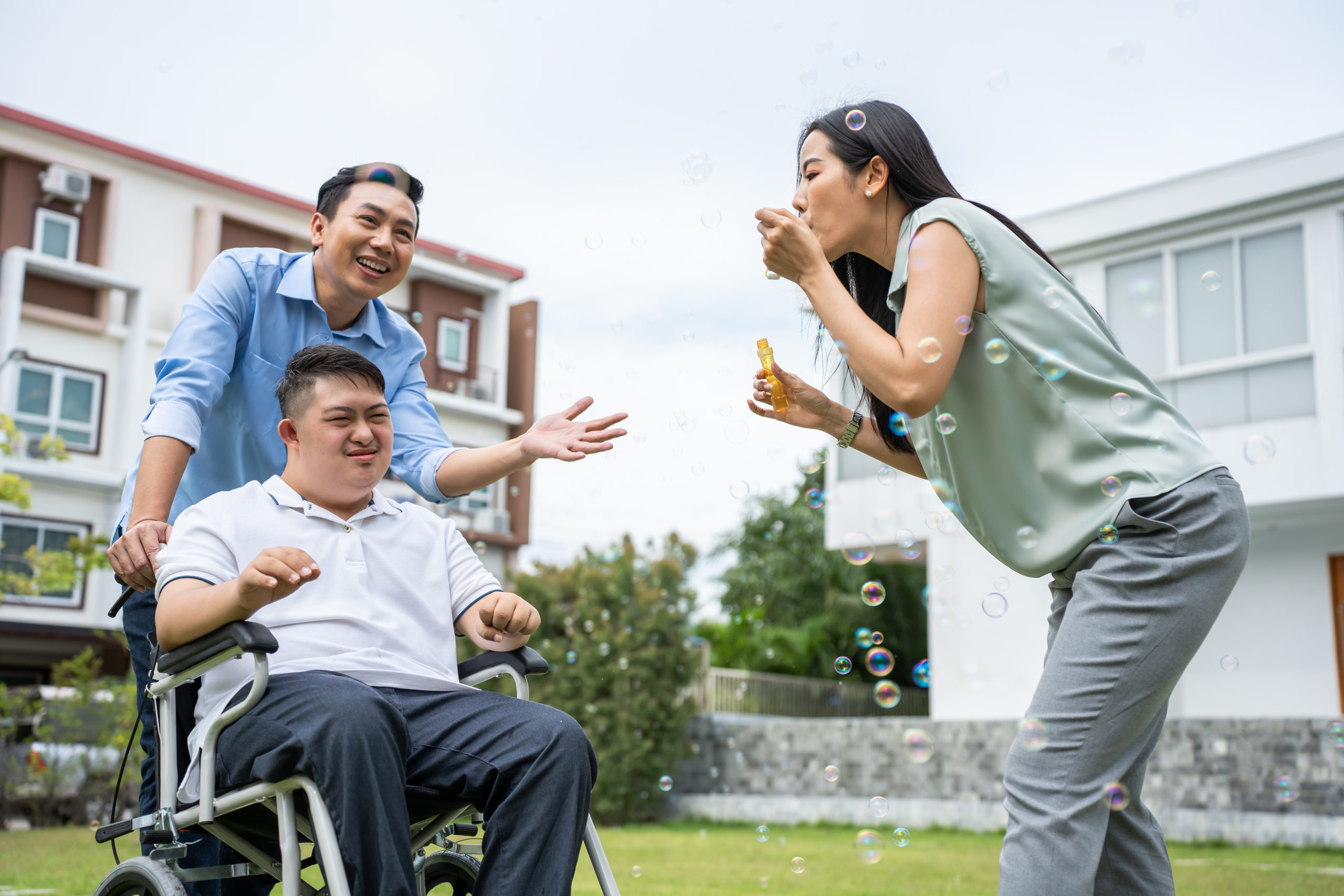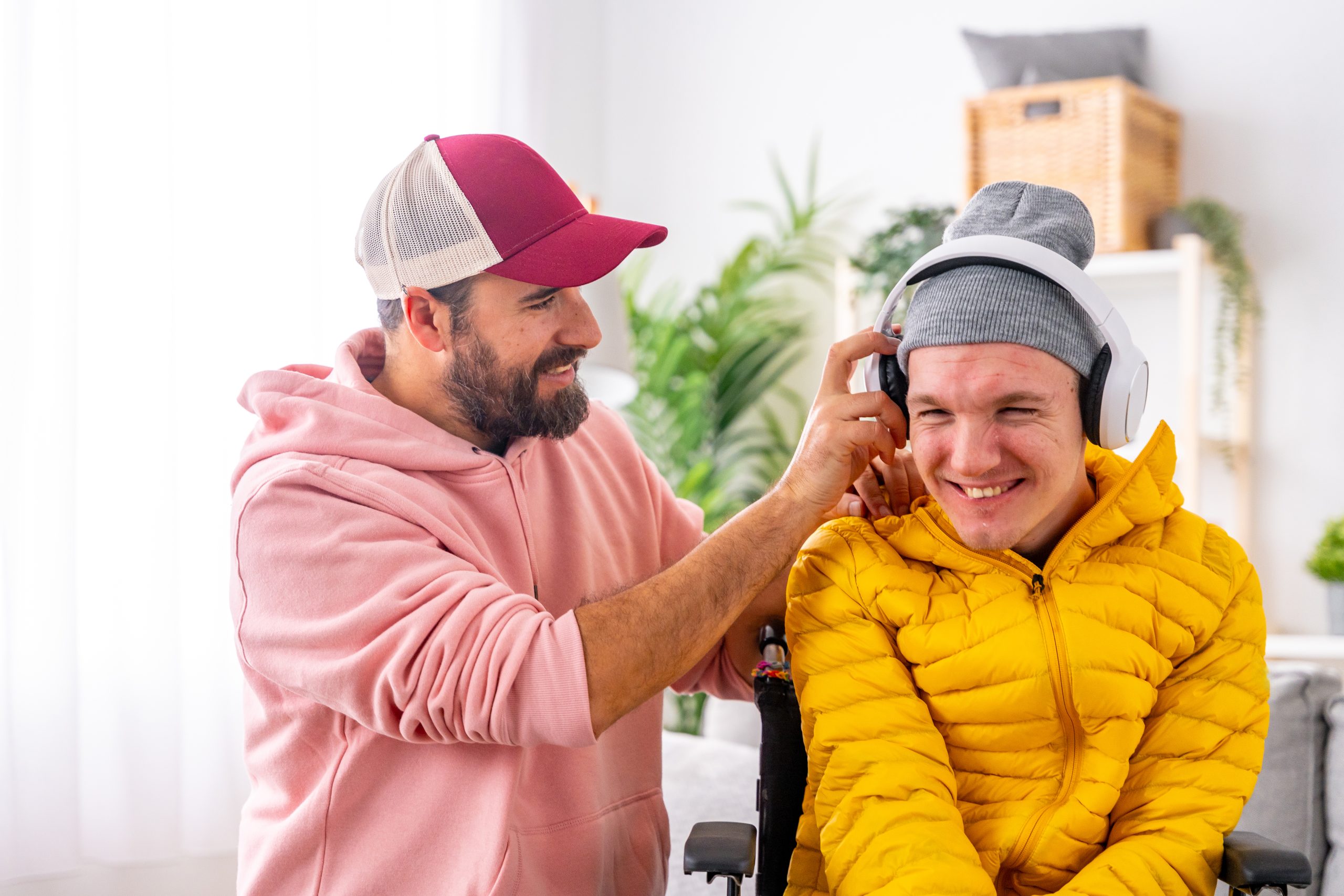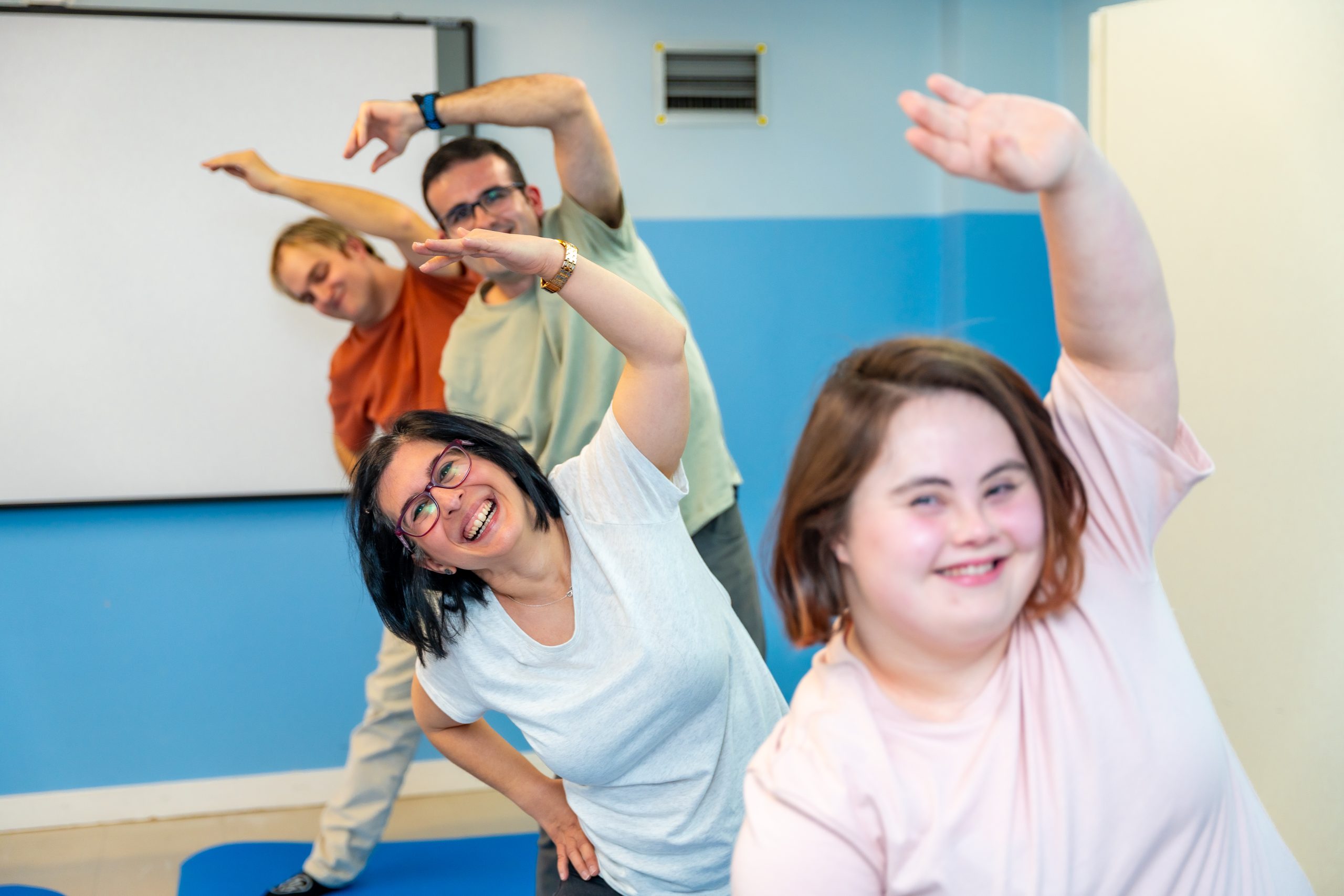Introduction
Independence. It’s a fundamental human desire that transcends age, ability, and circumstance. The freedom to make choices about our daily lives—from what we eat for breakfast to where we live and how we spend our time—forms the foundation of our identity and self-worth.
For people living with disabilities, the path to independence often involves unique challenges. Yet, the desire for autonomy remains just as powerful. At Fair Ora Care Services, we believe that independence isn’t about doing everything alone; rather, it’s about having the power to direct your own life and make meaningful choices.
Person-centered disability support represents a revolutionary shift in how we approach care services. Instead of focusing solely on physical needs or medical conditions, this approach puts the individual—their goals, preferences, and aspirations—at the heart of all support planning. When implemented with skill and compassion, person-centered support doesn’t just assist; it transforms lives by building genuine independence.
Understanding Person-Centered Disability Support
Person-centered disability support is more than just a service methodology; it’s a philosophy that recognises each individual’s right to self-determination. At its core, this approach prioritises the person over their disability, viewing each participant as a unique individual with their own strengths, preferences, and goals.
Historically, disability services often followed a medical or institutional model, where experts determined what was “best” for the person with a disability. Decisions were made for people rather than with them. This approach, while well-intentioned, often resulted in care that addressed physical needs but neglected personal fulfilment and individual choice.
The evolution to person-centered care represents a significant paradigm shift. Consider these key differences:
| Traditional Approach | Person-Centered Approach |
|---|---|
| Focuses on limitations | Focuses on possibilities |
| Provider determines needs | Individual expresses preferences |
| Standardised care plans | Customised support strategies |
| Risk-averse | Balanced risk assessment |
| Success measured by health metrics | Success measured by quality of life |
At Fair Ora Care Services, we embrace this person-centered philosophy wholeheartedly. We understand that true support means empowering individuals to make their own choices while providing the tailored assistance they need to achieve their goals.
The Psychological Impact of Independence
The connection between independence and psychological wellbeing is powerful and well-documented. Research consistently shows that autonomy—the ability to make choices and direct one’s own life—is a fundamental psychological need linked to happiness, self-esteem, and overall mental health.
A landmark study published in the Journal of Disability Policy Studies found that people with disabilities who had greater control over their support services reported significantly higher life satisfaction compared to those with less input. This finding underscores what we observe daily at Fair Ora Care Services: when participants take an active role in directing their care, their confidence and sense of self-worth flourish.
The psychological benefits of independence extend beyond immediate wellbeing. They include:
- Enhanced motivation: When people set their own goals, they’re more invested in achieving them.
- Improved resilience: Successfully overcoming challenges builds confidence for future obstacles.
- Reduced learned helplessness: Active participation prevents the development of passive dependency.
- Greater life satisfaction: The ability to make choices that align with personal values leads to more meaningful living.
For people with disabilities, the journey toward independence often involves overcoming not just physical barriers but also societal expectations and internalised limitations. Person-centered support creates a framework where these challenges can be addressed with dignity and respect for individual autonomy.
Fair Ora’s Approach to Building Independence
At Fair Ora Care Services, our approach to building independence is methodical, personalised, and always focused on the individual’s definition of success. We begin with a simple but powerful question: “What matters to you?” This question guides every aspect of our support planning.
Our comprehensive range of services is designed to promote independence across all life domains:
Assistance with Daily Personal Activities
We provide support with personal care activities while actively encouraging skill development and autonomy. Our approach involves:
- Skills assessment to identify existing capabilities
- Step-by-step skill building with appropriate support
- Gradual reduction of assistance as confidence grows
- Celebration of milestones, however small they may seem
For participants requiring high-intensity support, we maintain this focus on independence by finding opportunities for choice and control, even within necessary care routines.
Development of Daily Living and Life Skills
Our life skills programs go beyond basic self-care to address the full spectrum of independent living skills:
- Meal planning and preparation
- Household management
- Financial literacy and budgeting
- Time management and organisation
- Technology navigation and digital literacy
- Problem-solving and decision-making
These programs are tailored to each participant’s goals and delivered at a pace that builds confidence without causing frustration.
Community Participation and Connection
Independence extends beyond the home environment. Our community participation services help participants develop the skills and confidence to engage meaningfully with their communities:
- Transportation training
- Social skills development
- Accessing community resources
- Building relationships outside the support environment
- Pursuing educational or vocational opportunities
- Developing and pursuing hobbies and interests
What sets Fair Ora’s approach apart is our commitment to individualisation. We recognise that independence looks different for everyone. For one person, success might mean living alone with minimal support; for another, it might mean having the confidence to express preferences within a supported living environment. We meet participants where they are and build from there, with respect and patience.
Real Stories of Transformation
Note: The following stories are composite examples based on real experiences, with details changed to protect privacy.
Michael’s Journey to Community Engagement
When Michael first came to Fair Ora Care Services, he rarely left his home due to anxiety about navigating public spaces. His goal was simple but meaningful: to independently visit the local library each week.
We developed a graduated plan that began with accompanied visits during quiet hours, then slowly transitioned to Michael travelling independently for short periods. Today, not only does Michael visit the library weekly, but he has also joined a book club and volunteers at community events.
“The difference,” Michael says, “is that they didn’t just take me places—they taught me how to get there myself. Now I decide where I want to go and when.”
Sarah’s Kitchen Confidence
Sarah’s cerebral palsy affects her motor control, and she had always been told cooking independently would be too dangerous. However, during her initial planning meeting with Fair Ora, she expressed her passion for cooking.
Rather than dismissing this goal as too risky, our team worked with Sarah to identify adaptive equipment and modified techniques that would allow her to cook safely. We began with simple recipes and gradually increased complexity as her confidence grew.
Six months later, Sarah prepares most of her own meals and has hosted dinner parties for friends and family. “Being able to cook for myself isn’t just about the food,” Sarah explains. “It’s about knowing I can take care of myself and even care for others.”
The Group Home Transformation
A group of four participants living in shared accommodation expressed frustration about the rigid scheduling of household activities. In response, our support team facilitated house meetings where residents could voice preferences and negotiate compromises.
Over time, the residents developed a system for sharing household responsibilities based on individual preferences and strengths. The result was not just a more efficiently run household but also improved relationships among housemates and a stronger sense of home ownership.
These stories highlight an important truth: independence isn’t achieved through grand gestures but through consistent, respectful support that focuses on the person’s goals rather than the provider’s convenience.
Overcoming Barriers to Independence
Building independence often means confronting and overcoming significant barriers. People with disabilities frequently face obstacles that include:
- Physical accessibility issues in homes and communities
- Limited expectations from family, caregivers, or society
- Skill gaps due to lack of previous opportunities
- Confidence deficits stemming from past experiences
- Financial constraints that limit options
- Complex support systems that are difficult to navigate
At Fair Ora Care Services, we approach these barriers systematically:
- Identifying barriers through thorough assessment and ongoing dialogue
- Prioritising challenges based on the individual’s goals
- Developing strategies that address barriers incrementally
- Advocating for change when external factors create unnecessary limitations
- Revisiting and adjusting approaches as circumstances evolve
One of the most common challenges in supporting independence is balancing safety concerns with the dignity of risk—the right to make choices that involve some level of risk. We believe that reasonable risk-taking is essential for growth and learning. Our approach involves thoughtful risk assessment that considers both physical safety and emotional wellbeing, creating support plans that mitigate unnecessary risks while allowing for meaningful choice.
The Role of Family and Community
Families and communities play crucial roles in supporting independence. When family members understand and support the goals of person-centered care, progress accelerates significantly.
We encourage families to:
- Recognise capabilities rather than focusing solely on limitations
- Allow time for tasks to be completed independently, even when it would be faster to help
- Celebrate progress rather than perfection
- Respect choices even when they differ from family preferences
- Provide emotional support during setbacks and challenges
Similarly, community connections create natural opportunities for independence development. Through our community participation programs, we help participants build relationships that extend beyond the support environment, creating sustainable networks of natural support.
A participant’s story illustrates this beautifully: “Before, I only spent time with my family and support workers. Now I know the staff at my local café by name, I’m part of a walking group, and I volunteer at the community garden. I don’t just live in my community—I belong to it.”
Measuring Progress and Success
Building independence is rarely a linear journey. Progress often comes in waves, with periods of rapid development followed by consolidation or even temporary setbacks. At Fair Ora Care Services, we recognise the importance of meaningful measurement that captures the full spectrum of growth.
Our approach to measuring progress includes:
- Collaborative goal-setting that reflects the participant’s priorities
- Breaking larger goals into achievable milestones
- Regular reflection on progress and challenges
- Celebrating achievements of all sizes
- Adjusting goals as participants’ aspirations evolve
We use both quantitative measures (such as the number of tasks completed independently) and qualitative assessments (such as confidence levels and satisfaction with participation). This balanced approach ensures we capture the full impact of support services on a person’s life.
Perhaps most importantly, we emphasise that independence is not a destination but a journey. Even small increases in autonomy can have profound effects on quality of life and self-perception.
Future Trends in Person-Centered Support
The field of disability support continues to evolve, with exciting developments that promise to further enhance independence and self-determination:
Technological Innovations
Adaptive technologies are creating new possibilities for independence:
- Smart home technologies that allow remote control of environments
- Augmentative communication devices that provide more nuanced expression
- Mobility innovations that expand access to communities
- Apps and software designed to support daily living skills
At Fair Ora, we stay informed about these developments and help participants access technologies that align with their goals.
Policy and Funding Evolution
Australia’s National Disability Insurance Scheme (NDIS) continues to evolve, with increasing emphasis on participant choice and control. These changes create both opportunities and challenges for person-centered support. Fair Ora Care Services remains committed to advocating for policies that enhance genuine independence rather than merely measuring service outputs.
Integration of Services
The future of disability support lies in greater integration with mainstream services. Rather than specialized “disability” solutions, we envision communities where universal design and inclusive practices make participation natural and seamless for everyone. Fair Ora actively works toward this vision through community partnerships and education initiatives.
Conclusion
Building independence through person-centered disability support is transformative work. At Fair Ora Care Services, we witness daily the profound impact that appropriate, respectful support can have on individuals’ lives. From small daily choices to major life decisions, the ability to direct one’s own path is fundamental to human dignity and fulfillment.
Our commitment extends beyond providing services to fostering genuine independence—whatever that means for each individual we support. We believe that everyone has the right to make meaningful choices about their life, and that with the right support, people with disabilities can achieve goals that might once have seemed impossible.
If you or someone you care about could benefit from our person-centered approach to disability support, we invite you to contact Fair Ora Care Services. Together, we can explore what independence means to you and develop a support plan that helps you achieve your unique vision of a fulfilling life.
At Fair Ora Care Services, we don’t just provide care—we build independence, promote dignity, and transform lives.
Fair Ora Care Services is a disability service provider based in Brisbane, Queensland, offering a range of NDIS-registered supports including assistance with daily personal activities, development of daily living and life skills, community participation support, and more. We are committed to making a difference in the lives of people with disabilities by making life easier, fairer, and more involved through participation within their communities.



